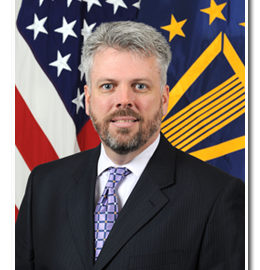
Social Security: Boost benefit 8 percent per year
If you won the lottery would you take smaller payments starting immediately or bigger bucks if you wait? Senior Correspondent Mike Causey says that's the choice...
If you won the lottery and were offered the choice between lots of smaller immediate payments vs. much bigger payouts starting in three, four or five years, which would you chose? A bird in the hand or a turkey in the future?
That’s the decision that most federal workers (everybody under the FERS retirement system) will face as they plan for retirement. Do they take Social Security benefits as soon as they are eligible, or do they wait and let those benefits increase about 8 percent a year, each year? It’s a tough call, at least for some people.
Example: What if you could start collecting Social Security at age 62 and get $750 per month, as opposed to waiting until age 70 (when you must begin taking it) and getting $1,320 a month. No brainer right? Take it sooner you get it longer. Take it later you get more.
And the correct answer, as with much of life, is… it depends! On a lot of things. Things like will you really need the Social Security payments to get by in retirement or can you delay getting them so you get more. Things like family longevity can figure into the equation. Did your mother or grandmother live to be 113? Did you father and his brothers, all in their 90s, die in a synchronized parachuting accident, or at a dude ranch in Nevada?
Believe it or not, some people are worried that by delaying their payments until age 70 they may die at 75 and miss out. The act of death seems to worry them less than not getting their fair share!
So what do you do? And what about the deadline (this Friday, April 29) for certain married couples to defer one spouse’s Social Security benefit while allowing the other to collect as early as age 62?
All of the above will be on the agenda for benefits expert Tammy Flanagan. She’s going to talk about the ins-and-outs of Social Security for active and retired feds on today’s Your Turn show. That’s 10 a.m. EDT at Federal News Radio or, in the D.C. area, on 1500 AM. She’ll also deal with the different ages when people become eligible for full benefits, the so-called Full Retirement Age. For people born between 1943 and 1954 that FRA is 66. For those born in 1957, it is 66 years and 6 months and for those born in 1960 and later it is 67. So how does that work? And why the ladder approach to benefits.
Listen to the show, which will be archived later today so you can listen again, or refer it to a friend. Also, join in the webinar Tammy will be doing Thursday (10 a.m.) for the National Active and Retired Federal Employees. The subject is claiming Social Security and your own personal retirement timeline. NARFE members can log in at www.narfe.org.
Nonmembers can sign up online and participate in this and future webinars on retirement, legislation, Social Security and the infamous WEP and GPO (windfall elimination provision) and (government pension offset) law that dramatically reduce Social Security benefits for CSRS retirees and their spouses. Check out the show and the webinar. It could save (or make you) lots of money.
Nearly Useless Factoid
To date, five presidents have been boy scouts: John F. Kennedy, Gerald Ford, Bill Clinton, George W. Bush and Barack Obama.
Source: Ask.com
Copyright © 2025 Federal News Network. All rights reserved. This website is not intended for users located within the European Economic Area.
Mike Causey is senior correspondent for Federal News Network and writes his daily Federal Report column on federal employees’ pay, benefits and retirement.
Follow @mcauseyWFED





